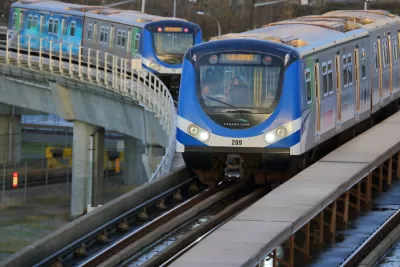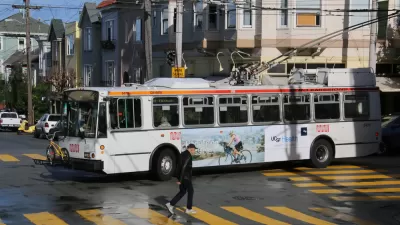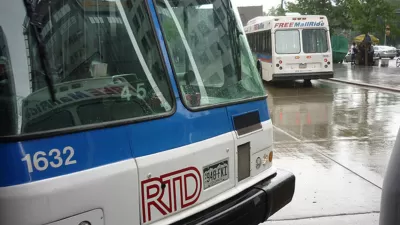Sad days for public transit agencies in Canadian cities could be a sign of layoffs to come for U.S. transit agencies.

"Almost 1,500 temporary layoffs will take place at TransLink, Coast Mountain Bus Company and B.C. Rapid Transit Company, with the bus company again feeling the effects most because more than half of the transit system’s employees work there," reports Jennifer Saltman in Vancouver, British Columbia.
"The cuts come a week after TransLink revealed that due to plunging ridership, farebox revenue and fuel tax income, it is losing about $2.5 million per day, and it is expected that April’s revenue will be down $70 million, or 51 per cent, from what was forecasted earlier this year," adds Saltman. Translink expects to lose $75 million to $93 million every month for the next six months.
In addition to the wave of temporary layoffs, service is also taking a huge hit, with 18 bus routes suspended around the city already last week, and another 47 routes expected to be cut in May. "According to the transit agency, it prioritized preserving routes serving hospitals and other health facilities, and routes that are suspended either duplicate other routes or have low ridership," reports Saltman.
As of this writing, the reporting on state of transit agencies in the United States during the pandemic has focused mostly on service reductions, lost revenue at the farebox, and the potential for transit to continue to suffer in the a recession or if people flock to automobiles to reduce public health risk (whether transit proves to be a significant risk or not). Stories in the United States, like a broadly sweeping article about U.S. transit agencies from The New York Times, or another article focusing specifically on D.C. Metro, have tended to mention the future threat of massive layoffs.
FULL STORY: COVID-19: Service reductions, layoffs, executive pay cuts begin this week at TransLink

Planetizen Federal Action Tracker
A weekly monitor of how Trump’s orders and actions are impacting planners and planning in America.

Maui's Vacation Rental Debate Turns Ugly
Verbal attacks, misinformation campaigns and fistfights plague a high-stakes debate to convert thousands of vacation rentals into long-term housing.

Restaurant Patios Were a Pandemic Win — Why Were They so Hard to Keep?
Social distancing requirements and changes in travel patterns prompted cities to pilot new uses for street and sidewalk space. Then it got complicated.

In California Battle of Housing vs. Environment, Housing Just Won
A new state law significantly limits the power of CEQA, an environmental review law that served as a powerful tool for blocking new development.

Boulder Eliminates Parking Minimums Citywide
Officials estimate the cost of building a single underground parking space at up to $100,000.

Orange County, Florida Adopts Largest US “Sprawl Repair” Code
The ‘Orange Code’ seeks to rectify decades of sprawl-inducing, car-oriented development.
Urban Design for Planners 1: Software Tools
This six-course series explores essential urban design concepts using open source software and equips planners with the tools they need to participate fully in the urban design process.
Planning for Universal Design
Learn the tools for implementing Universal Design in planning regulations.
Heyer Gruel & Associates PA
JM Goldson LLC
Custer County Colorado
City of Camden Redevelopment Agency
City of Astoria
Transportation Research & Education Center (TREC) at Portland State University
Jefferson Parish Government
Camden Redevelopment Agency
City of Claremont





























